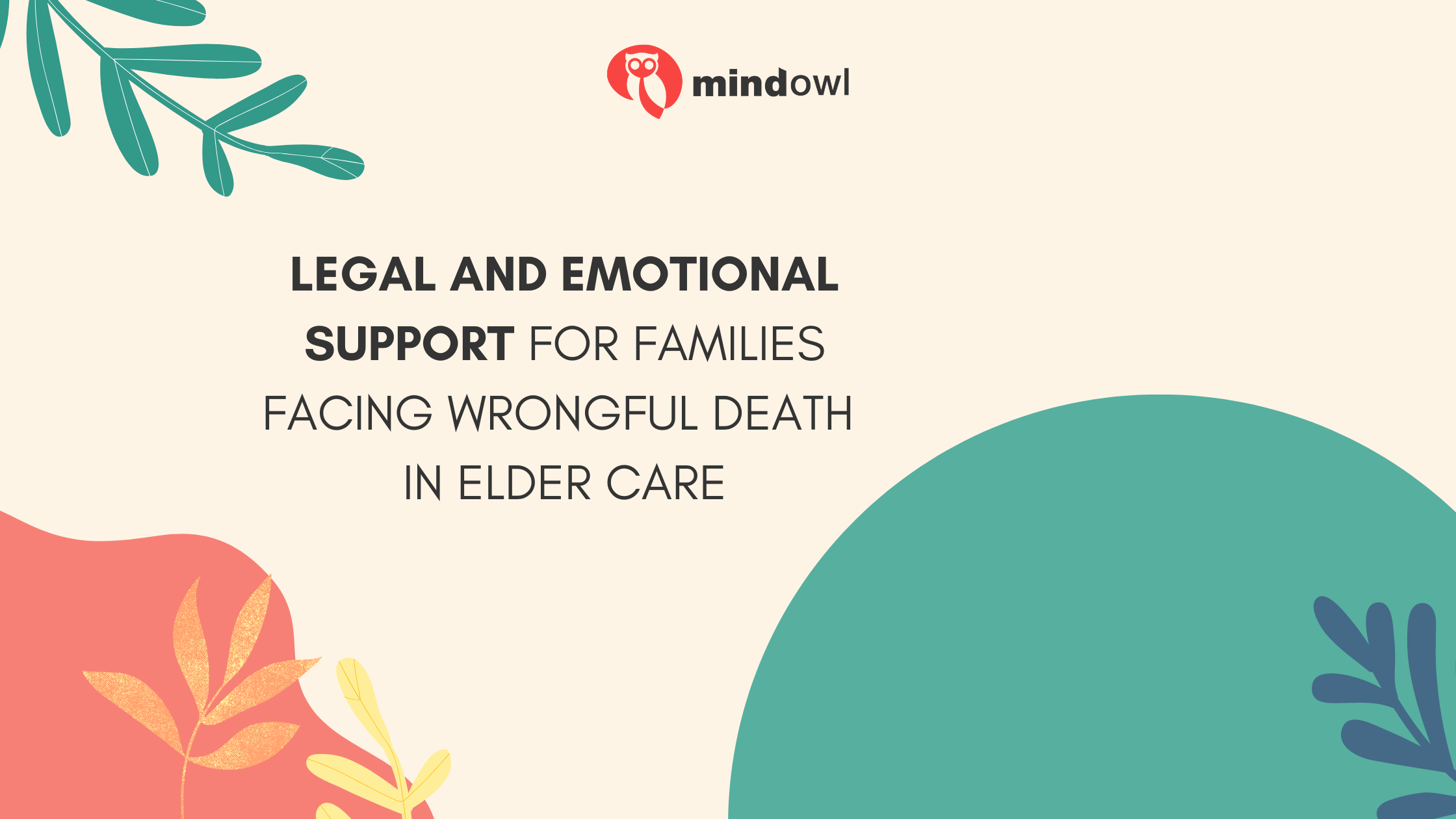Losing a family member is incredibly difficult no matter the circumstances. However, when a loved one passes due to healthcare negligence, it can complicate legal proceedings and make emotions run higher. This includes an elderly loved one passing due to negligence or abuse from an elder care facility. When a wrongful death occurs under these circumstances, it’s smart to familiarize yourself with the legal and emotional support available to you. This can make navigating these difficult waters slightly easier.
Wrongful Death in Elder Care
Wrongful death in an elderly care facility can take several different forms. An unsecured facility can cause an elder family member to elope, or leave the facility without supervision, causing fatal injuries. Nursing home neglect can result in misdiagnoses or failure to provide life-saving care. Nursing home abuse can result in death due to trauma or injuries sustained. If a medical procedure is performed incorrectly, it can also result in a patient’s death.
No matter the specific cause, it is devastating for friends and loved ones.

Emotional Support
When losing an elderly loved one, particularly to wrongful death, emotional support is crucial. Emotional support provides coping and relaxation techniques when emotions are at their highest. It can make the weight of grief easier to carry. These methods and techniques can help many people navigate these difficult emotions.
Support Groups and Systems
Support groups consisting of other members who have gone through similar tragedies (wrongful death, losing an elderly family member, and more) can help you share and hear similar perspectives. Support systems consisting of friends, family members, and loved ones who care about you and grieve with you can make a huge difference in managing emotions. Family members in your support system can help share memories about your elderly loved one to aid in the grieving process.
Therapy and Medication
Therapists or psychiatrists can help provide healthy coping mechanisms and perspectives to make daily life easier. Some can even prescribe medication if depression or anxiety grows to be too much to handle. There isn’t anything wrong with therapy or medication after a tragic death, and medication doesn’t have to be taken forever.
Mindfulness and Meditation
Mindfulness techniques help you stay grounded and focused on the present instead of dwelling on the past or worrying about the future. Meditation acts similarly by helping you address and release negative thoughts or emotions. These techniques can also be relaxing to calm nerves and anxiety during rough days.
Legal Support
Managing the aftermath of an elderly loved one’s wrongful death isn’t strictly emotional. When a wrongful death occurs, it’s quite common to seek legal help including litigation to compensate for lost wages, medical and funeral expenses, and emotional distress. Family members must also handle the estate of the elderly loved one after they pass, including any life insurance claims. It can be difficult to handle these legal proceedings during the grieving process, so knowing the various processes, steps, and help available is beneficial.
Wrongful Death Litigation
Many surviving family members consider litigation after a wrongful death. While it can’t recover a loved one, it can provide compensation for hardships endured in the aftermath. If you hire a wrongful death lawyer, they can evaluate and gather evidence to determine case eligibility. They will defend and fight for you to receive the highest compensation possible. Litigation also holds the responsible parties liable for what occurred, potentially lowering the risk of future occurrences.
File Insurance Claims
Filing a life insurance claim if your elderly family member had a policy is important after they pass. If you are seeking litigation, your attorney may advise you to wait to file any life insurance claims. An attorney can assist you with filing these claims if required when the time comes, including any other insurance policies.
Estate Planning Assistance
After a loved one passes, one must handle the estate to ensure the will is represented. This can be emotional and challenging. An estate attorney can assist with this process, and may be smart for larger families or if your loved one did not have a will. Handling an estate can involve the funeral process, your loved one’s finances, and any assets they may had. The executor of the estate is designated by the will or the court.
Conclusion
Losing a loved one, particularly through a wrongful death, is incredibly hard in many ways. There are several ways to get emotional and legal support throughout the grieving process, but it is difficult regardless. There’s no shame in finding support groups, therapy, and medication as you navigate grief and estate handling. Hiring an attorney for wrongful death litigation or to handle the estate is never the wrong move, as they can assist with many legal processes while you are grieving.
Interlinking Opportunities
From (https://mindowl.org/grief-is-love-with-no-place-to-go/) with the anchor emotional and legal support
From (https://mindowl.org/meditation-is-preparation-for-death/) with the anchor the death of an elderly loved one
MindOwl Founder – My own struggles in life have led me to this path of understanding the human condition. I graduated with a bachelor’s degree in philosophy before completing a master’s degree in psychology at Regent’s University London. I then completed a postgraduate diploma in philosophical counselling before being trained in ACT (Acceptance and commitment therapy).
I’ve spent the last eight years studying the encounter of meditative practices with modern psychology.

